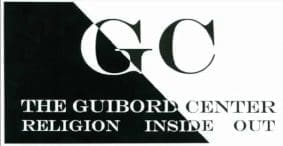Interview with Mrs. Laura Smalley
Born into slavery, Mrs. Laura Smalley lived to see freedom after the Civil War. In these transcripts from a 1941 interview, she described her experience to John Henry Faulk of the Works Progress Administration Federal Writers’ Project (FWP).
Slavery and Freedom
John Henry Faulk: Well, do you remember, remember any of the slaves being sold? Do you remember any slave sellers, you know, men that would just buy and sell slaves?
Mrs. Laura Smalley: No, sir. I never did see it. Why I never, us children never did know that, you know. We heard talk of it, but then I reckon that was after, after slavery I reckon. We heard talk of it. I used to hear them talk about, you know, you putting them on stumps, you know. Or something high, you know and bidding them off like you did cattle.
John Henry Faulk: Hmm.
Mrs. Laura Smalley: Bid them off like you did cattle.
John Henry Faulk: Well, none of your folks were ever sold then?
Mrs. Laura Smalley: No, sir. None of them never was sold.
Unidentified Interviewer: You were born right there and never did leave? You were?
Mrs. Laura Smalley: Born right there and stayed there until I was about nine, ten years old, maybe more. Stayed right there. We didn’t know where to go.
Unidentified Interviewer: Uhmm.
Mrs. Laura Smalley: Mama and them didn’t know where to go, you see after freedom broke. Just turned, just like you turn something out, you know. Didn’t know where to go. That’s just where they stayed.
Unidentified Interviewer: Uh huh. That’s right.
Mrs. Laura Smalley: Hmm. Didn’t know where to go. Turned us out just like, you know, you turn out cattle. [laugh] I say. Didn’t know where to go.
Interview with Laura Smalley, Hempstead, Texas, 1941 (part 1 of 5). (n.d.). [Audio]. Library of Congress, Washington, D.C. 20540 USA. Retrieved June 11, 2021, from https://www.loc.gov/item/afc1941016_afs05496a/
Life Under Slavery
Mrs. Laura Smalley: They tend to all the children. Tend to the children. Just like, you know, you bring a whole lot of children, you know, and put them down, you know, at one house. Well, there somebody have to look over them, you know and tend to them, that way. Just a house full of them children. And if one act bad, you know, they’d whup him. They’d whup him too, the old woman. And if the old woman didn’t tend to the children, they’d whup, they’d whup her too.
John Henry Faulk: Hmm.
Mrs. Laura Smalley: You know to make her tend to the children, she wasn’t doing nothing. Well she wasn’t a cripted [crippled] woman like me, you know. She wasn’t an old cripted woman, satisfied she wasn’t an old cripted woman like me. And they’d whup her. And they had trays, I don’t know where you see a tray. Wooden tray. Dug out, you know, all about that, that long. And all of them you know would get around that tray with spoons, and just eat. I can recollect that because I ate out the tray.
John Henry Faulk: Hmm.
Mrs. Laura Smalley: With spoons, you know, and eat, treat you like mush or soup or something like that. But feed them, you know, before twelve o’clock. And all them children get around there and just eat, eat, eat out that thing. And that old woman, you know, she would tend to them. Her name, Aunt Tishe. Yeah, I know what happen to her. Old woman, name Aunt Tishe. And she —
John Henry Faulk: Just like slopping hogs, wasn’t it?
Mrs. Laura Smalley: It, just like a tray, you know, just like a tray, you know, you have, it’s made just like a hog pit, a hog trough, you know.
Interview with Laura Smalley, Hempstead, Texas, 1941 (part 1 of 5). (n.d.). [Audio]. Library of Congress, Washington, D.C. 20540 USA. Retrieved June 11, 2021, from https://www.loc.gov/item/afc1941016_afs05496a/
